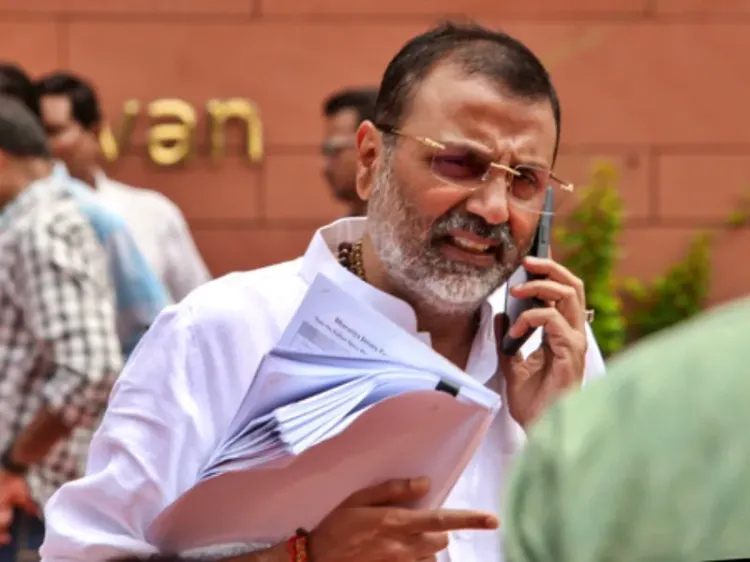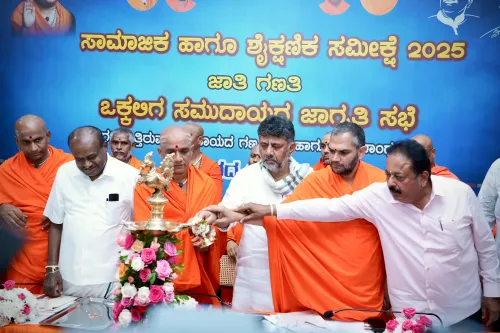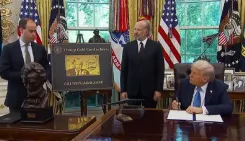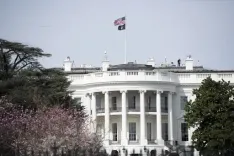Why Did Nishikant Dubey Criticize Rahul Gandhi Over Gen Z?

Synopsis
Key Takeaways
- Gen Z opposes nepotism and corruption.
- Dubey's remarks challenge the Gandhi-Nehru legacy.
- Social media trends reflect the political engagement of youth.
- Political parties must resonate with young voters' values.
- The battle for Gen Z's allegiance is intensifying.
New Delhi, Sep 18 (NationPress) Lawmaker Nishikant Dubey (BJP) stirred up a storm on social media with a harsh critique of Congress MP Rahul Gandhi following his recent admiration for Gen Z.
In a pointed statement, Dubey accused Gandhi of distorting the principles held by India’s youth, asserting that Gen Z is resolutely opposed to nepotism, corruption, and ideological confusion.
“Gen Z stands against dynastic politics. Why would they accept Rahul ji after the legacies of Nehru, Indira, Rajiv, and Sonia ji? They oppose corruption; why wouldn’t they want you gone?” Dubey challenged, directly targeting the lineage of the Gandhi-Nehru political family.
Dubey’s comments followed Gandhi’s earlier remarks, which hailed Gen Z as champions of democracy and the constitution.
While Rahul Gandhi framed himself as an advocate for youth-driven transformation, Dubey retorted with a narrative that portrays Gen Z as skeptical of dynastic politics and yearning for clear ideological direction.
In an unexpected turn, Dubey stated, “He aspires to turn Bangladesh into an Islamic nation and Nepal into a Hindu nation; why not make India a Hindu nation too? Prepare to leave the country; he is on the way.”
This statement, largely seen as provocative, faced backlash for its communal implications and aggressive undertone.
Political analysts observe that Dubey’s remarks align with a wider BJP agenda aimed at resonating with young nationalistic sentiments.
By portraying Gen Z as ideologically decisive and intolerant of corruption, Dubey aims to connect them with the BJP’s governance and cultural vision.
The online discourse intensified, with supporters applauding Dubey’s forthrightness while critics labeled him as fear-mongering.
Trending hashtags like #GenZAgainstDynasty and #YouthForChange reflected the emotional impact of the discourse. Dubey’s comments highlight the increasing significance of Gen Z in shaping India’s political future.
As digital natives, they not only engage with political content but are active participants in its creation—through memes, reels, and viral discussions.
Whether Dubey’s message rallies support or alienates moderate youth is uncertain. However, one thing is evident: the competition for Gen Z’s loyalty is intensifying, and both factions are not holding back.









